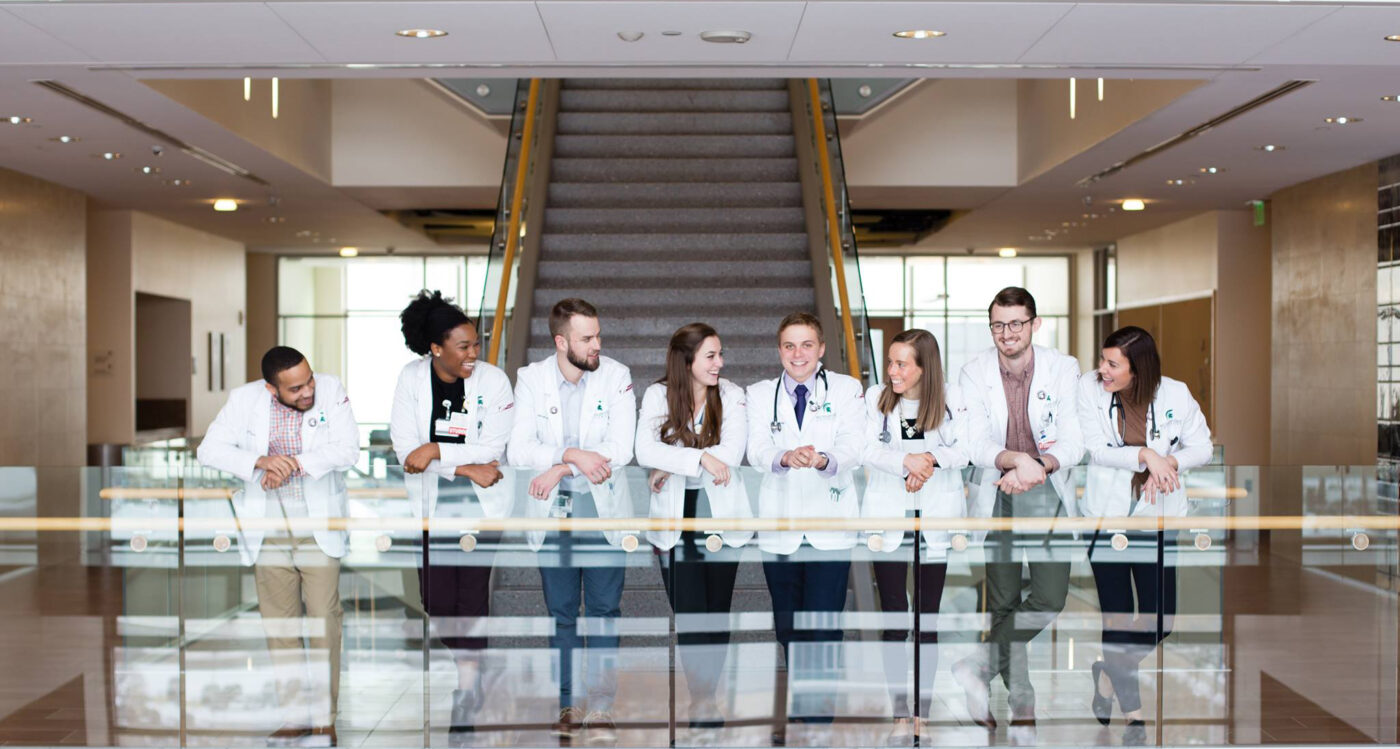Gaining admission into a United States medical school remains a highly competitive endeavor. According to the latest data from the Association of American Medical Colleges (AAMC) for the 2024-2025 application cycle, approximately 51,946 applicants vied for spots in MD programs. Of these, about 23,048 were accepted as first-year enrollees (matriculants), resulting in an acceptance rate of roughly 44.4% and a rejection rate of approximately 55.6%. These updated figures reflect a slight increase in the acceptance rate compared to previous years. Yet, most aspiring medical professionals still face significant hurdles in securing a place in their desired programs.
As a result, most of these rejected applicants turn to Caribbean medical schools for a second chance to pursue the medical profession. However, many are left wondering what the consequences of attending a foreign medical school would be. For this reason, this article will outline the pros and cons of Caribbean medical schools.
Defining Caribbean Medical Schools
Top Caribbean medical schools can also be termed offshore schools. They are medical schools geographically located in the Caribbean. Most exist principally to train medical students from the U.S. who intend to match into residency and practice in the U.S. eventually.
Most Caribbean medical school programs are considered to be “dual-campus” programs, which means that the basic components of medical sciences are studied in the Caribbean. At the same time, the subsequent clerkships and clinical rotations are done at hospital facilities in the U.S.
Why Is U.S. Medical School Admission So Tough—and How Can You Beat the Odds?
What fuels the intense competition for U.S. medical school spots? It’s not just the volume of applicants—though that’s a big factor. Admissions committees use a holistic lens, balancing stellar academics with real-world experience and personal grit. Beyond the numbers, they’re hunting for future doctors who show resilience, empathy, and a knack for problem-solving—qualities that pop in essays, interviews, and volunteer work. The bar is high, and it’s getting higher.
Eye-Opening Trend
Over the past decade, applications have spiked nearly 30%, driven by a post-pandemic boom in healthcare interest. Yet, MD program seats creep up by just 1-2% annually. This gap creates a crunch, sidelining even strong candidates. Picture this: thousands with solid MCATs and GPAs miss out each year, caught in a supply-demand squeeze.
How to Break Through
Rejection isn’t the endgame. Boost your odds by logging clinical hours—think shadowing doctors or working as a medical scribe. A post-baccalaureate program can polish your credentials, and applying early (June or July) can give you a 20% edge, per some experts. Small moves, big payoff.
As a result, many of these rejected applicants turn to Caribbean medical schools for a second chance to pursue the medical profession. However, many are left wondering what the consequences of attending a foreign medical school would be. For this reason, this article will focus on outlining the pros and cons of Caribbean medical schools.
Weighing the Pros:
Higher Chances of getting accepted
The average MCAT and GPA cutline for medical schools in the United States are 31 and 36, respectively. On the other hand, the average MCAT and GPA for admission in Caribbean medical schools are way lower. This is typically why most students with subpar MCAT and GPAs view Caribbean schools as an option since their grades have no shot at D.O. or M.D. schools in the U.S.
Clinical Rotations In The United States
Some Caribbean medical schools will offer clinical rotations in the United States for 4th and 3rd-year students. If you are considering practicing medicine in the United States, you should pick a Caribbean school that offers these rotations.
Graduating with a degree from a Caribbean school that does not grant these rotations would be worthless because you can’t practice in the U.S. When you do your clinical rotations there, you have better chances when applying there.
Early Clinical Experience
Most Caribbean medical institutions offer their students an opportunity to develop clinical skills and expertise early in the learning curriculum. On the other hand, medical schools in the United States will postpone this until later in the preclinical curriculum or entirely leave it to the clinical. By early exposure to clinical settings and experience, students become more prepared to apply the medical knowledge acquired during preclinical sciences when in clinical rotations.
Rolling Admission
Distinct from med schools in the United States, attending a Caribbean med school allows you to make applications anytime during the academic year, and you can matriculate shortly after.
This is a huge pro, as you are granted an opportunity to commence medical school immediately, even for those waiting to hear from the U.S. schools they applied to.
Excellent Climate
Geographically, the Caribbean is such a cool place. You’ll experience warm tropical climatic conditions all year round. You won’t have to worry about all the shivering and the snow we face during winter. But I want to believe that there is no way this would be your only reason for attending a Caribbean School of Medicine.
International Medical Training
In today’s global society, students who acquire global medical studies enjoy a great advantage when practicing as physicians and when applying for residency. The fact that some Caribbean medical schools are closely affiliated with several teaching hospitals means the students have an opportunity to take part in clinical rotations in the U.S.
Some Caribbean schools go the extra mile to offer their students clinical rotations globally.
Weighing the Cons:
No Guarantee About You Becoming A Doctor
The National Resident Matching Program reports that 50% of graduates from Caribbean medical institutions match into residencies in the U.S. The apparent best Caribbean medical school has a 70% match rate, while in comparison, 79% of U.S. osteopathic graduates match, and 90% of U.S. Allopathic graduates as well.
When looking at the numbers in the grim light of the high cost of Caribbean schools, you will soon realize you are paying so much for something far from sure.
Limited Access To Residency
You severely handicap yourself when you join a Caribbean med school, especially if you aspire to join the highly competitive specialties like neck and head surgery, urology, plastic surgery, dermatology, radiation oncology, orthopedic surgery, among others.
One Caribbean medical school graduate admits to having experienced the heat of competition. Although biased, he talks about his challenging journey and futile attempts to match into orthopedic surgery. This is despite the fact that he has great board scores and an amazing CV.
It is important to note that some Caribbean schools hide their match list, and if that’s the case with your target school, then there is a huge red flag.
High competition
We can draw a bottom line and say that most of these foreign schools are less concerned with their student’s success and are more oriented towards the money printing business. Some will not even feel the pinch when enrolled students drop out so long as they make money from the students.
After joining a Caribbean med school, you must compete vigorously and stay at the top of your class for your degree to be significantly worthy. Put in simpler terms, you must score high on USMLE Step 1 to make up for graduating from a Caribbean school.
But even after all these efforts, you will still be limited in the residency options.
Inconsistent Quality
With over 60 Caribbean medical schools, the quality is subject to variation. Unlike U.S. medical schools offering M.D. degrees, which are accredited by the LCME, accreditation standards for Caribbean schools are less stringent, robust, and standardized.
Some Caribbean schools deliver great results and drive high performance in their students. This small percentage of committed schools records students’ results of over 95% score USMLE Step 1 and a high matching percentage into United States residency programs.
However, other schools record a UCMLE Step 1of as low as 19% and horrible residency matching rates.
Unquestionable Stigma
Although it might be somewhat more acceptable to be a Caribbean medical school graduate today since just a few students gain admission to U.S. medical schools, most residency programs, particularly the ones in competitive specialties, refuse to accept or favor Caribbean graduates. This form of rejection often stigmatizes these medical graduates.
However, if your goal is to work as a primary healthcare provider, you will not face this challenge, but if you intend to enter extremely competitive fields, it might be more challenging to secure a residency position.
High Tuition Cost and Debt Burden
You will come across Caribbean medical schools that promise already secured federal financial aid to students. This means the students accrue significant student loans, about $200,000. When this knowledge is combined with the fact that the graduates will be less likely to secure residency in the competitive specialties, you soon realize that attending a Caribbean school of medicine with a student loan might be such a risky option financially.
You should also remember that studying in a Caribbean medical school is more expensive. Most of these schools are private, with tuition fees higher than the average U.S. medical school.
This means you might take years after graduation to repay your student loan. USMGE, the institution that has been funding residency spots, has not increased the number of spots significantly for years. You bet you would not want to be staring at unemployment and an unpaid student loan at the start of your career.
Is Joining a Caribbean Medical School Good for You?
For students, who, for whatever reason, either screw up in college, don’t mind stiff competition, are highly motivated and do not wish to wait, or those willing to do everything it takes to become a doctor, irrespective of the specialty, Caribbean medical schools should be the last resort.
However, we recommend you work towards qualifying for admission to osteopathic or allopathic medical schools nationwide. It might take you hard work and a longer time to start, but it is worth it. You will be surprised that you could strengthen your application in one year.





